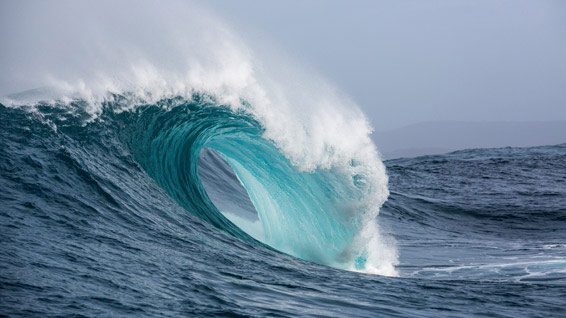Published:

Underwater noise from ships is putting mussels in a state of stress and affecting their breathing and eating habits, as well as damaging their DNA with unknown consequences.
Noise pollution is growing in oceans and waterways around the world, caused by shipping, oil and gas exploration, renewable energy devices and more.
A few studies have looked at how noise affects large marine creatures like whales and dolphins, but little is known about how marine invertebrates like mussels react to this noise.
A new study from marine scientists at Edinburgh Napier University and Heriot-Watt University shows that mussels - despite not having ears - can perceive the noise of ships all too well and it is having a profound effect on their physiology.
The researchers collected mussels from the shore in Musselburgh, outside Edinburgh, and tested their response to noise in the lab at the St Abbs Marine Station near Eyemouth.
Dr Karen Diele from Edinburgh Napier University and Co-Director of Research at the St Abbs Marine station said: “The blue mussel is an extremely important invertebrate in the UK: it is commercially valuable and it plays an essential ecological role as a reef builder and a filter-feeder that keeps the water clean.
“Mussels don't have ears but they can detect changing sound levels in their environment.
“We recorded and played the sound of a ship's motor to a sample of blue mussels in a controlled setting, and measured biochemical and behavioural changes in the mussels.
“For the first time in a marine species, we detected noise-induced changes in DNA integrity, indicating an underlying source of stress.
Dr Matt Wale, also from Edinburgh Napier, said “The mussels exposed to noise consumed 12 percent less oxygen, which would lead to increased energy use and potentially slower growth.
“The filtration rate, or how much algae they consume, decreased by over 80 percent and there was a 60 percent increase in valve gape, which means the mussels are spending more time vulnerable to predators.”
Dr Mark Hartl from Heriot-Watt University said: “Given the wide distribution of mussels in areas where they may be exposed to noise, the impact of noise does not appear to be fatal or immediately dangerous for mussels.
“However, this doesn't mean it isn't having a long-term effect on mussel populations in high noise areas, it could be affecting their growth, reproductivity and may help explain the decline of mussel banks in some areas of the UK.
“It's important that we understand how noise is stressing mussels in environmental risk assessments so that we can ensure environmental policy and regulation is effective."
The team is now researching with their students how Norway lobsters, squid and native oysters respond to similar noise.
The research was published in Science of the Total Environment. Read the report in full: https://www.sciencedirect.com/science/article/pii/S0048969719329535?via=ihub
This work received funding from the MASTS pooling initiative (The Marine Alliance for Science and Technology for Scotland) and was supported by the St Abbs Marine Station, a charity dedicated to marine science, conservation and education.